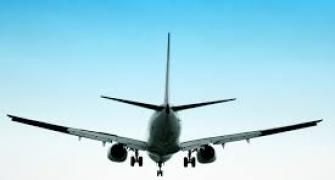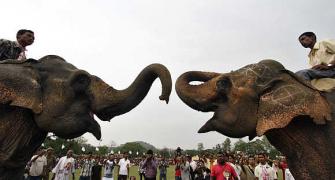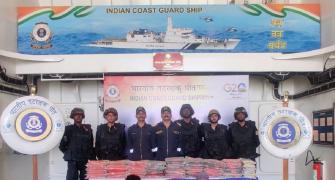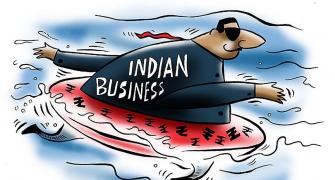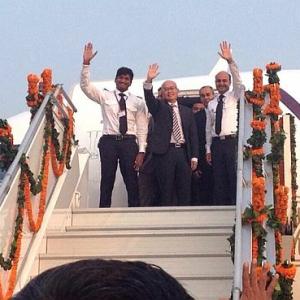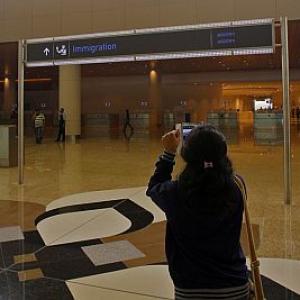Though cost structures of airlines are different, fares are more or less in the same range because of competition.
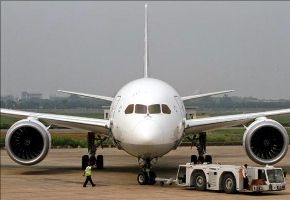 Domestic airline companies are gearing up to oppose the civil aviation ministry’s move to impose a cap of Rs 20,000 on economy class fares.
Domestic airline companies are gearing up to oppose the civil aviation ministry’s move to impose a cap of Rs 20,000 on economy class fares.
According to them, the government should first lower taxes and ease airlines’ cost pressures.
A ministry's internal note proposes caps on minimum and maximum fares airlines can charge, keeping in mind their cost structure, profit margin and ensuring the last minute fares are not out of bounds of passengers.
The proposal has not been formally discussed with the carriers.
However, the Air Passengers Association of India has welcomed the idea of a price cap on the ground it will prevent unreasonable pricing.
Airline sources also point out for most part of the year, even the highest-priced tickets are below Rs 20,000.
Another executive said most of the time, the highest fares were between Rs 11,000 and 13,000.
It was only during festive seasons when fares moved upwards of Rs 20,000.
“I think it is a crazy idea. The government cannot find ways to cap costs, be it airport charges or taxes on aviation turbine fuel,” said an executive of a private airline.
He added if the government was imposing a higher ceiling of Rs 20,000, then it should also set a minimum fare, so that some airlines do not offer rock-bottom fares, forcing competing airlines to drop fares.
Like in other parts of the world, airlines in India follow a dynamic pricing system, with different fare buckets.
Though cost structures of airlines are different, fares are more or less in the same range because of competition.
Pricing on certain dates or occasions is done by factoring high demand.
Demand around Christmas to Goa is always high and airlines typically offer fewer lower priced tickets or open only mid- to high-fare buckets for sale.
So, fares tend to be higher even when booked six months in advance.
However, during a non-peak period, airlines are unable to anticipate demand in advance and, hence, fares are not too high.
A search on MakeMyTrip on Thursday showed a one-way Delhi-Srinagar fare on May 9 (during the summer holiday season) is priced at Rs 5,376 upwards but a ticket on the same route on January 8-10 was available for Rs 3,199.
“There are fare caps precedents in other markets, such as Saudi Arabia where private airlines like Sama had to shut partly due to restrictive economic regulations.
"Recently, Saudi Arabia has decided to relax the fare caps, as these are detrimental to the health of the airlines," said aviation consultant Anurag Jain.
He added: “The Airport Economic Regulatory Authority regulates airport rates and airport operators get a guaranteed rate of return. If airlines are to be economically regulated, it should be done holistically and not piecemeal such as is being done on pricing, unbundling of fares, etc.”
Section 5 of the Aircraft Act, 1934, allows the government to frame rules pertaining to the economic regulation of air transport, including those related to tariff.
Sources say the government might have to amend Aircraft Rules, 1937, in order to impose such a price caps.
In the past, too, issues of exorbitant last-minute fares were raised but the government shied from stepping in.
In 2010, in the wake of complaints of exorbitant fares, the Directorate General of Civil Aviation issued a circular directing all airlines to furnish details of fares each month.
“Fare cap is a good idea. If airline pricing is unreasonable, the government should intervene and take action,” said D Sudhakara Reddy, president, Air Passengers Association of India.
Reddy’s views are echoed by a section of passengers who feel that airlines simply pass on the burden of high rates or high taxes to customers.
“There is a need for regulation, which will ensure the quality of service offered is commensurate to the fares.
"What the government is considering now is a fare cap. It is not planning to fix fares and the two are different things,” said an analyst.


.jpg)
